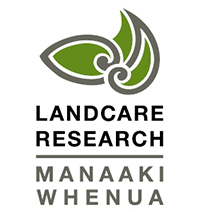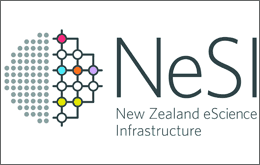About
This event provides an opportunity for all researchers to improve their computational lab skills through a number of hands-on training sessions. Training modules are offered by experienced researchers who are keen to share their knowledge and skills with members of their research communities.
Digital Skills for Research Training Week @ Lincoln is organised by several New Zealand research institutions: Landcare Research, AgResearch, Plant & Food Research, Lincoln University, New Zealand Genomics Ltd (NZGL) and New Zealand e-Science Infrastructure.
This event consists of two parts. The first one is the Software Carpentry workshop which will take place 17-18th October, 2016. This hands-on workshop takes full two days (see the details below). The second part of this training event is an array of shorter training modules which are more domain-specific (please see the schedule below).
You are welcome to sign up for any sessions you find useful. You can choose to attend only Software Carpentry workshop or only some of the sessions taking place between 19th and 21st October. However, please note that if you want to attend Software Carpentry workshop, we advise that you come for the full two days (Monday and Tuesday).
We are currently looking into options of offering a few more sessions. They will be added as soon as we confirm them. So watch this space!
Organisers
Location
Gerald Street. Lincoln, New Zealand 7608
The sessions will be taking place at different venues located within the AgResearch, Landcare Research, Plant&Food Research offices and at the Lincoln University campus. Please check the registration sites for details.
Sessions
-
Monday and Tuesday 9:30am - 4:00 pm Software Carpentry - 2 day workshop
Details and registration
Software Carpentry is a hands on workshop helping researchers develop their computational lab skills. This is a hands-on workshop and you will have to bring your own laptop setup for the session. The link below includes all information about the setup. Please make sure that you are ready for the workshop.
-
Wednesday 09:30 am - 11:30 am Exploratory Data Analysis with R - part 1
Register
This session will cover: importing and manipulating data, summary statistics and data visualisation. This is a hands-on session. You need to bring your own laptop with R (https://www.r-project.org/) and RStudio (https://www.rstudio.com/products/rstudio/download/) installed on it. Please note, you have to install both.
-
Wednesday, 12:30 pm - 2:30 pm Exploratory Data Analysis with R - part 2
Register
This session builds up on the morning session Exploratory Data Analysis with R - part 1 and will cover: further data visualisation, linear models and outlier detection. This is a hands-on session. You need to bring your own laptop with R (https://www.r-project.org/) and RStudio (https://www.rstudio.com/products/rstudio/download/) installed on it. Please note, you have to install both.
-
Wednesday 12:00pm - 2:00pm Programmatic GIS with Python
Register
The attendees will have to bring their own laptops as this is a hands-on session. You should have the following packages/tools installed: Python, shell and Git. You should also have a solid basic understanding how to use these tools (preferably at Software Carpentry level).
-
Wednesday, 3:00pm - 4:00pm Designing and planning your studies and experiments
Register
This seminar discusses some aspects of research planning that can be more effective through the use of statistical ideas. These include: setting your study objective; choosing your experimental ‘treatments’ and material; ideas that affect the structure of an experiment such as of ‘blocking’ and replication; trial ‘layout’; sampling, and data management. Most of these ideas apply whether the study/experiment uses people, plants, insects or any other biological material, and apply wherever the experiment might be based (many fields, fields, laboratory, tasting room, analytical instrument, etc.).
-
Thursday 9:30am - 12:30pm Introduction to Bayesian Statistics
Register
Introduction to Bayesian Statistics. This is a hands-on session. Please note that you have to bring your own laptop with the following packages/software installed: R, Rstudio, OpenBUGS, JAGS, r2jags
-
Thursday, 9:30 am - 12:30 am 16S data analysis
Register
This is a seminar session. We will present 3 different pipelines for 16S data analysis (mothur, qiime and a more home made one) and discuss the results of running these on a test dataset.
-
Thursday, 10:00am - 12:00pm The what, why and how of Research Data Management
Register
Research funders, including the National Science Challenge, are increasingly requiring that researchers actively manage their research data, while publishers are requiring data publication which needs to be planned from the start of this project. In this workshop Erin-Talia Skinner, Records and Research Data Analyst at Lincoln University will discuss six elements of Research Data Management, how it benefits the researcher and activities involving metadata and Data Management Plans.
-
Thursday, 1:00 pm - 3:00 pm Web-based apps using R Shiny
Register
Web-based apps using R Shiny. Please note that this is a hands-on session and you will need to bring your own laptop with the following packages/software installed: R, RStudio; preferably also Shiny and leaflet.
-
Friday, 9:30am - 4:00pm Genome Assembly
Register
We will assemble a small genome de novo, assess the quality of the assembly, run gene predictions on the assembly, and visualise the assembly, the raw reads it was derived from, and the gene predictions. IMPORTANT: All participants will have to bring their laptops set up for the workshop. Following registration, you will be contacted (by email) with further details on how to set up your laptop for the workshop. If you have any questions, please email training@nesi.org.nz
-
Friday, 9:30am -12:30pm Random Effect Models
Register
Random Effect Models. Please note that this is a hands-on session and you will need to bring your own laptop with the following packages/software installed: R, RStudio, nlme and lme4.
-
Friday, 1:00 pm - 2:00 pm Landcare Research Data repository (CKAN and Excel add-in)
Register
This is a seminar session during which we will demonstrate how to use Landcare Research Data repository (CKAN) and an Excel add-in built for it.
-
Friday, 10:00 am - 12:00 pm Practical Introduction to High Performance Computing with NeSI
Register
This session is an introduction to High Performance Computing (HPC) and its applications in research across different disciplines. New Zealand eScience Infrastructure provides support for all researchers in the country who want to use HPC in their work. We will explain what HPC is, why it is useful for research, show some case studies and provide an overview of our training activities as well as give practical advice on how to start using the NeSI-supported clusters.
Schedule
| Time | Slot | Description |
|---|---|---|
| Monday and Tuesday 9:30am - 4:00 pm | Software Carpentry - 2 day workshop | Software Carpentry is a hands on workshop helping researchers develop their computational lab skills. |
| Wednesday 09:30 am - 11:30 am | Exploratory Data Analysis with R - part 1 | This session will cover: importing and manipulating data, summary statistics and data visualisation. This is a hands-on session. You need to bring your own laptop with R (https://www.r-project.org/) and RStudio (https://www.rstudio.com/products/rstudio/download/) installed on it. Please note, you have to install both. |
| Wednesday, 12:30 pm - 2:30 pm | Exploratory Data Analysis with R - part 2 | This session builds up on the morning session Exploratory Data Analysis with R - part 1 and will cover: further data visualisation, linear models, outlier detection. This is a hands-on session. You need to bring your own laptop with R (https://www.r-project.org/) and RStudio (https://www.rstudio.com/products/rstudio/download/) installed on it. Please note, you have to install both. |
| Wednesday 12:00pm - 2:00pm | Programmatic GIS with Python | The attendees will have to bring their own laptops as this is a hands-on session. You should have the following packages/tools installed: Python, shell and Git. You should also have a solid basic understanding how to use these tools. |
| Wednesday, 3:00pm - 4:00pm | Designing and planning your studies and experiments | This seminar discusses some aspects of research planning that can be more effective through the use of statistical ideas. These include: setting your study objective; choosing your experimental ‘treatments’ and material; ideas that affect the structure of an experiment such as of ‘blocking’ and replication; trial ‘layout’; sampling, and data management. Most of these ideas apply whether the study/experiment uses people, plants, insects or any other biological material, and apply wherever the experiment might be based (many fields, fields, laboratory, tasting room, analytical instrument, etc.). |
| Thursday 9:30am - 12:30pm | Introduction to Bayesian Statistics | Introduction to Bayesian Statistics. Please note that you have to bring your own laptop with the following packages/software installed: R, Rstudio, OpenBUGS, JAGS, r2jags. |
| Thursday, 9:30 am - 12:30 am | 16S data analysis | This is a seminar session. We will present 3 different pipelines for 16S data analysis (mothur, qiime and a more home made one) and discuss the results of running these on a test dataset. |
| Thursday, 10:00am - 12:00pm | The what, why and how of Research Data Management | Research funders, including the National Science Challenge, are increasingly requiring that researchers actively manage their research data, while publishers are requiring data publication which needs to be planned from the start of this project. In this workshop Erin-Talia Skinner, Records and Research Data Analyst at Lincoln University will discuss six elements of Research Data Management, how it benefits the researcher and activities involving metadata and Data Management Plans. |
| Thursday, 1:00 pm - 3:00 pm | Web-based apps using R Shiny | Web-based apps using R Shiny. Please note that this is a hands-on session and you will need to bring your own laptop with the following packages/software installed: R, RStudio; preferably also Shiny and leaflet. |
| Friday, 9:30am - 4:00pm | Genome Assembly | We will assemble a small genome de novo, assess the quality of the assembly, run gene predictions on the assembly, and visualise the assembly, the raw reads it was derived from, and the gene predictions. IMPORTANT: All participants will have to bring their laptops set up for the workshop. Following registration, you will be contacted (by email) with further details on how to set up your laptop for the workshop. If you have any questions, please email training@nesi.org.nz |
| Friday, 9:30am -12:30pm | Random Effect Models | Random Effect Models. Please note that this is a hands-on session and you will need to bring your own laptop with the following packages/software installed: R, RStudio, nlme and lme4. |
| Friday, 1:00 pm - 2:00 pm | Landcare Research Data repository (CKAN and Excel add-in) | This is a seminar session during which we will demonstrate how to use Landcare Research Data repository (CKAN) and an Excel add-in built for it.. |
| Friday, 10:00 am - 12:00 pm | Practical Introduction to High Performance Computing with NeSI | This session is an introduction to High Performance Computing (HPC) and its applications in research across different disciplines. New Zealand eScience Infrastructure provides support for all researchers in the country who want to use HPC in their work. We will explain what HPC is, why it is useful for research, show some case studies and provide an overview of our training activities as well as give practical advice on how to start using the NeSI-supported clusters.. |
Contact
If you have any questions about this event, please send an email to training@nesi.org.nz





